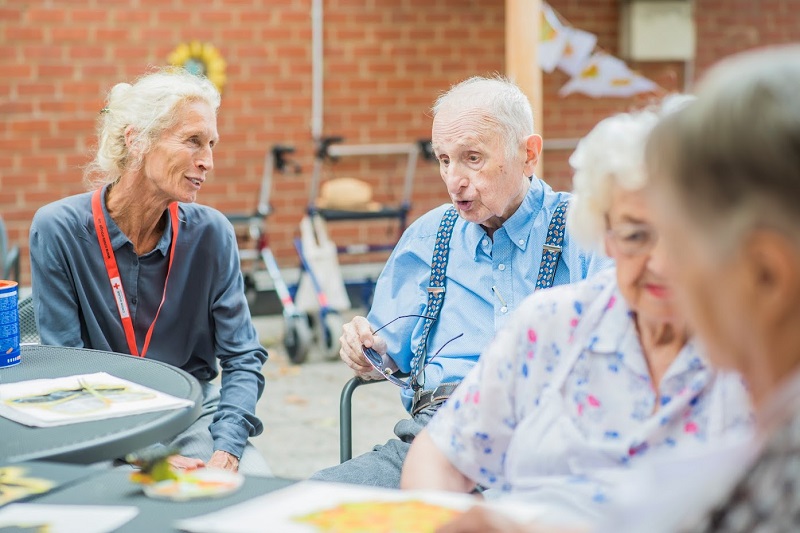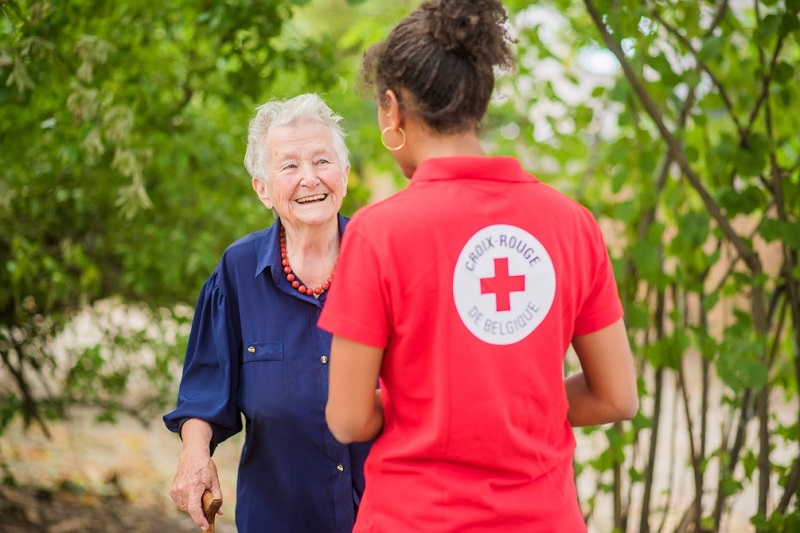Fighting loneliness
Older people are at increased risk of loneliness and social isolation. Although there are currently no global or EU-wide estimates of the number of older people in the community who are experiencing loneliness and social isolation, it is estimated that between 20 and 34 per cent of older people in 25 European countries are affected.
Social isolation and loneliness impact the quality of life, cognitive function, well-being and independence of older people, contributing to increased use of health and social care services. Being isolated comes not only through a lack of company but also due to a lack of support. With age, social circles tend to shrink, and health issues grow, increasing vulnerability.
Many older people experience less opportunities to meet other people and may face limitations in financial resources, making it harder to create and maintain social contacts. Besides these environmental factors, health issues and difficulties with mobility represent additional barriers to developing meaningful social ties. Stressful life events such as retirement, the death of friends and family, and relocation can cause people to lose long‐standing social networks, thereby contributing to loneliness.
National Red Cross Societies in Europe carry out various activities to help fight loneliness and promote social inclusion among older people. Mainly through volunteers, the Red Cross offers services in different settings – in the community, the home and nursing homes – that are designed and planned to create moments of leisure, share knowledge among generations, recognise and value skills and experiences, and improve digital skills and the use of technology to create online and in-person connections among people.
The work of the Red Cross follows a life course approach. Most National Societies have integrated programmes addressing people from different age groups, covering different life stages, from the start of life to later phases where critical care and support are needed. With a focus on different needs at different and critical stages of people’s lives, a life course approach has as a core principle to address the cause and not the later consequences of disease. Thus, it considers health and well-being throughout people’s entire life course and understands the need to plan according to risks and protective factors, taking action to advocate for healthier environments and people-centred health systems.

In Belgium, the Red Cross is working to improve the lives of older people by enabling them to stay connected and fully exercise their role as active and autonomous citizens through healthy life choices. In the framework of the project “Reliage – les actions qui relient à la Croix-Rouge (Actions that connect people), Red Cross volunteers support people to fight isolation, rebuild their self-confidence and live more fulfilling lives at home.
Throughout Wallonia, teams of volunteers fight loneliness through home visits and by organising recreational activities that are open to all. In collaboration with nursing homes, home care professionals and local authorities, people who might need company are identified. Those that want to can be visited by local volunteers for a chat, to have a cup of coffee, or go for a walk together. "It is not always visible at first, but the visits do a lot of good for people. The people I visit tell me stories about their family, as well as their fears and anxieties. One of the ladies I visit has signed up for an activity, and we have gone outside on excursions, to the public gardens... Little by little, we have discovered that we share the same hobbies, which has helped build trust," says Patrick, a volunteer.

Volunteers take the time to listen, to recognise the person’s history and uniqueness and try to help them to value it too. When a person has more self-confidence, they are also more inclined to reach out to others and strengthen their social circle and support network. "I would like to thank the group of Red Cross volunteers who come once a month to keep us company, do some sewing, or help us with our knitting. Conversations are lively and we enjoy a cup of coffee and a sweet treat that the volunteers bring. It's a precious moment of sharing which, for elderly and sometimes isolated people, is a very important part of the day," says Célina, a nursing home resident.
Home visits are a sustainable option for providing social support and have a substantial impact on combatting loneliness and social isolation. Friendly visiting programmes can help overcome most of the issues causing social isolation (financial, physical mobility, psychological impediments) as they allow older adults to meet and maintain social contact with supportive community.
Loneliness and social isolation are proving to be among the most challenging social issues of the twenty‐first century and its ageing society. Given their devastating impact on physical and mental health, it is important to continue investing in effective interventions to reduce loneliness and social isolation.
Basic information
Activity name
Reliage – les actions qui relient à la Croix-Rouge (Actions that connect people)
Country
Belgium
Duration
2008-ongoing

